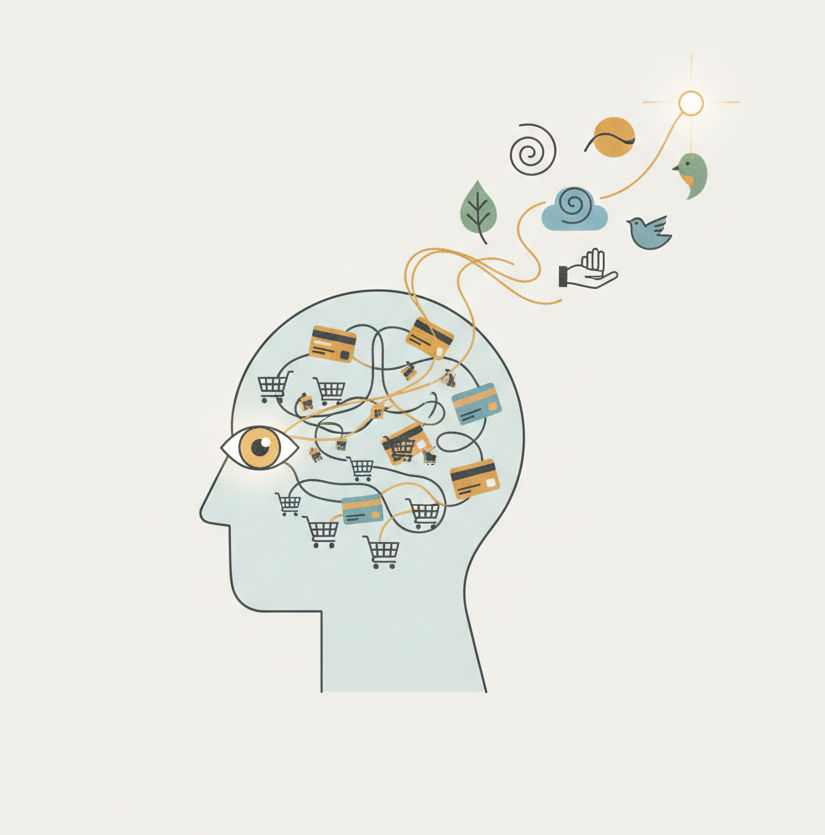The Fear of Freedom in the Modern World
- Thariq Rasyid

- Mar 31, 2025
- 4 min read
“To transcend nature, to be alienated from nature and from another human being,
finds man naked, ashamed. He is alone and free, yet powerless and afraid”.
-Erich Fromm.
Freedom is one of the greatest achievements in modernity. The spread of
democracy, protection of human rights, and the digital-industrial revolution have
facilitated various individuals with unlimited autonomy. However, the essence of this
freedom has led us to a paradoxical situation, where there are various possibilities of
choice that cause existential crises, alienation, and madness in society itself. Madness
itself is a contradiction: how society facilitates technological and material progress
but fails to advocate the existential need to conform to trends, creativity, and purpose.
Therefore, consumer culture puts on a mask of emboldening and isolating society to
present a façade of happiness. This process hides anxiety, dissatisfaction, and
depression. This systematic dysfunction leads to destructive behavior, from
exploitation to authoritarianism, as individuals externalize vague fears.

According to the German-American psychoanalyst, sociologist, and humanist activist Erich Fromm, freedom is not only a source of emancipation but also a cause of deep fear. In his book Escape from Freedom (1975), he explains that humans often run away from freedom through conformity or submission to authority. The fear of responsibility that comes with freedom drives this escape, as individuals struggle with the burden of making autonomous choices. If an individual perceives self-authority as something fearful or overwhelming, they may view freedom itself as a heavy burden rather than a form of liberation.
Freedom: Blessing or Curse?
Fromm believes that human freedom develops from social ties to individualism—a process called individuation. In the Middle Ages, society felt safe and comfortable within its rigid social structure, leading to stagnation. The era of feudal leadership and dogmatic theocracy exemplifies this. During the Renaissance and the rise of capitalism, individuals gained greater freedom. However, this freedom did not necessarily bring happiness; instead, it gave rise to alienation and anxiety. Fromm divides freedom into two types: negative and positive freedom.
Negative freedom is constrained by social structures and external authorities, limiting individuals, while positive freedom is the ability to realize and live freely in a meaningful way. Many individuals fail to achieve positive freedom and remain trapped in isolation. Regardless of whether one is bound by external structures or enjoys complete autonomy, they must be able to determine the direction of their own life. This often gives rise to a fear of freedom itself.
Mechanism of Escape from Freedom
Fear of freedom causes individuals to run away from their responsibilities. Here,
Fromm reveals that there are three mechanisms that individuals carry out in order to
escape from their freedom.
First, through authoritarianism, individuals surrender their power or freedom to a greater authority. These entities can manifest as political and legal leaders, corporatist and religious institutions, or totalitarian regimes. They tend to offer practical and efficient solutions to existing problems, attracting individuals who feel uncertain about freedom. This voluntary submission results in individuals avoiding the anxiety that comes with making their own decisions.
Secondly, individuals resort to destructive means. Individuals who cannot handle
or vent their freedom divert their fear in the form of aggression and offensiveness
toward other individuals or groups. We can see this form of behavior in violence,
hatred, war, and other repressive actions.
The third method is known as automaton conformity. People often encounter this
method in everyday life, which involves adapting to dominant social norms and
values. In simple terms, it is to follow existing and developing trends. With this, they
can avoid anxiety or pre-existential crises that arise as a consequence of complete
freedom.
Towards Balancing a Freedom
We now understand that freedom can lead to existential crises, but the solution is not to abandon it. Instead, we must develop an approach that is grounded in awareness and meaning. Individuals must actively engage in self-reflection and contemplation, allowing them to build and actualize their authentic values. Additionally, accepting one’s limitations—practicing gratitude, in short—can provide a sense of stability and purpose. Erich Fromm himself stated that authentic freedom is not isolationist but rooted in relationships, shared values, and meaning.
The modern world, which is digital and global, makes it easy for us to access the
internet and various media sources. We can integrate diverse perspectives from
different figures, books, films, and other media. With this, we can navigate and
implement a better concept of freedom. However, this abundance of information also
presents a paradox; while we have the tools to explore diverse perspectives and
cultivate our beliefs, we may find ourselves overwhelmed by choices and conflicting
narratives.
The challenge lies in discerning which ideas resonate with our authentic selves rather than succumbing to the pressures of conformity or external validation. In this context, true freedom involves not just the ability to choose but also the courage to take responsibility for those choices. By critically engaging with the myriad influences around us, we can foster a deeper understanding of our values and aspirations, ultimately leading to a more meaningful and empowered expression of freedom in our lives.




Comments